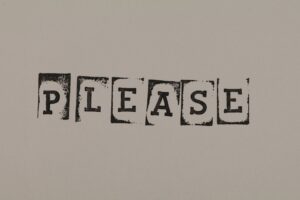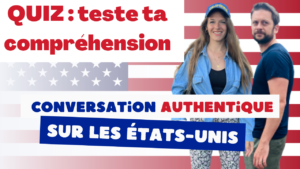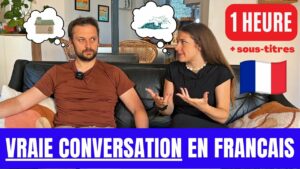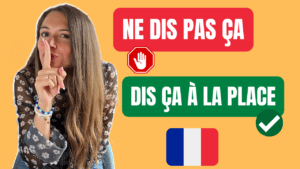Transcript
The most important news of the moment in France is the election of the new President of the Republic.
It's a fascinating subject with a rich vocabulary. It's a really good time to talk about this topic because the elections start this Sunday, April 10, 2022.
Hello everyone, welcome to this video about the elections in France.
I hope you're motivated and interested in this topic. Together we'll be looking at how the presidential election works, the main candidates and, above all, a lot of vocabulary.
This vocabulary will be very interesting for you, if you want to watch election reports, candidates, political debates or if you read articles on this topic.
If you speak English, you'll realize that there are quite a few words between French and English that are very close on this theme.
There are lots of transparent words, so it's easy to understand. A few weeks ago, I told you about this book "Kill the French".
In this book, you can read 100 stories written in French.
What's special about these stories is that they are written with many words that are transparent between English and French. These words are easy to understand and will help you to understand the context and, above all, to understand and integrate more complicated vocabulary.
Why am I talking about this book again? It's because it's a story about politics, about a political discourse where there are many similar words between French and English.
To make this video, I drew a lot of inspiration from this book. By the way, I've included the link to find this book on Amazon in the description if you're interested.
This video will be divided into five parts. First, we'll talk about the current president. Then we're going to look together at who can vote. Well, not me. And I'll explain why. Then we'll look at how this election works. Then we'll talk about the major candidates and the polls.
And finally, we will conclude with the link between the media and this election.
Let's start by talking about the current president. You probably know this, but France is a democracy. The people elect their president. The president is elected by the people. He is elected by the citizens, by the population.
Emmanuel Macron was elected five years ago at the age of 39. He is France's youngest president. When he ran for president, Emmanuel Macron created a brand new party called "La République En Marche". Often, it's also simply heard as "En Marche".
I don't know if you've noticed, but "En Marche" and "Emmanuel Macron" have the same initials. I don't know if that's on purpose, but you'd think so.
This party is centrist, it places itself in the center. When we talk about politics, we often talk about the left and the right. This party is not really on the left or on the right, but rather in the center.
His ideas are both left-wing and right-wing. You could say that Emmanuel Macron's policies are social and liberal. In other words, it's a blend of socialist and liberal ideas.
Emmanuel Macron is the current president, but he's running for re-election. He is also a candidate for this 2022 election. An important thing to know is that in the Constitution, in France, in the law, the president can't be elected more than twice in a row.
He cannot serve more than two consecutive terms. If Emmanuel Macron is re-elected, he cannot stand for re-election. That's a maximum of ten years in power in France.
Now let's talk about who can vote in this presidential election. If you have been following me for several months, you probably know my secret. I live in France, I speak French. French is my mother tongue, but I am not French, I am Belgian.
French nationality is the first criterion for voting in this election.
Only the French can vote for the future president. I find it very frustrating not to be able to vote for the president in the country where I live, but that's the way it is, that's the law.
The second condition for voting is to be at least 18 years old.
In France, 18 is the age of majority. We say "être majeur". I am of age. In France, 18 is the age at which you can vote. But it's also the age to get a driver's license, to drive a car.
To vote, you must also be registered on an electoral roll. It's not automatic. You're not going to receive a letter at home telling you not to forget to vote.
No, it's up to you to register in a town as a voter. Often, it's the town where you live, but it can also be, for example, the town where your parents live, or any other town. But it's the town you'll have to go to on polling day.
Polling is a synonym for voting. It's also important to know if you want to vote in France but you're not available on voting day because, for example, you're working or on vacation. You can make what is called a proxy.
When you appoint someone as your proxy, you authorize someone else to vote on your behalf. Note, however, that it's always better to choose someone who shares your political views.
Let's take a look at how this presidential election is going.
One of the first things you need to know in terms of vocabulary, if you're watching television coverage of this event, is that you can also say "the presidential election".
We don't always say the presidential election, we can also say the presidential election. Sometimes we also hear "les présidentielles". This is used to refer to the election. The presidential election takes place every five years. It's a five-year term. The president's term of office is called a quinquennium. To be a candidate for women, you need to have obtained 500 sponsorships from someone who is already elected.
What are we talking about when we talk about sponsorships?
A sponsorship is in fact the validation of your candidacy. To be a candidate, you need 500 people to validate your candidacy. But it can't be just anyone. It has to be people who have already been elected by the population.
For example, a mayor, i.e. the mayor of a town, a deputy or a senator. In France, deputies and senators are the people who propose and vote on legislation. Deputies work in the National Assembly and senators work in the Senate.
The National Assembly and the Senate are the two houses of parliament in France. This sponsorship rule was put in place to prevent just anyone from standing for the presidential election. It serves to validate the seriousness of the candidate, to show that the candidate is serious.
This presidential election is organized in two rounds, in two parts, in two times. We're going to vote twice.
This year, the French vote for the first round on April 10 and for the second round on April 22.
There are always two weeks between the two votes, between the two elections. In the first round, there are many candidates, you have the choice.
And in the second round, we will keep only the two best. When I say best, I mean those who got the most votes in the first round.
In reality, you can also be elected in the first vote, in the first round. To be elected president in a single vote, you need to have obtained more than 50 % of the votes. So the votes are the votes of the population.
It's really very rare. In fact, I don't think it's ever happened in France.
But who are the main candidates and the main political parties.
Before elections, candidates are on the campaign trail. Campaigning is the period before the election when candidates present their programs and talk about their ideas, trying to convince people to vote for them.
During this period, the candidates and their teams will, for example, speak in the media, go to markets to distribute leaflets.
A leaflet is a piece of paper on which the candidate and the program he or she is defending are presented. A candidate's program is a list of his or her ideas.
These are the things he'd like to put in place if elected president. During the campaign, the candidates will also organize political meetings, where they will talk about their programs and make speeches.
Speeches just like in the book I was telling you about.
Here, it's a mayor making a speech, but it's the same thing, the same vocabulary.
There are lots of transparent words like elections, voting, constitution, nation and president. Each candidate will defend his or her political ideas. Here's a quick look at the different synonyms for political figures.
We're talking about politicians. But we can also simply talk about politics, i.e. a politician. We can also talk about a politician.
Politician, politician or politician, politician or politician.
Historically, in France, there are two main parties: the right and the left. The right. The right-wing party is called Les Républicains, or LR. You can also hear or read in the articles.
On the left, it's the Socialist Party, the PS. The left tends to have social ideas, defending equality between people. For example, they'll want to invest in education, or they'll want wealthier people to pay more taxes.
The right is more in favor of tradition and individual property. Of course, there are plenty of other political currents, plenty of other political parties, and you'll see that for this presidential election, it's not the traditional parties that most interest the population.
Other party types include the center. I mentioned this at the beginning of the video. This is the case of Emmanuel Macron's party, which is a centrist party, neither really left nor really right. It brings together ideas from both the left and the right.
There's also the extreme left, which has ideas fairly close to those of communism. Then there's the far right, which is generally anti-immigration and nationalist, favoring the nation.
Then there's the ecologist party. This is a party that talks a lot about ecology, defending animal rights, wanting to protect the planet, limiting pollution through renewable energies, and so on.
The survey I'm showing you dates back to the end of March. That's when I shot this video. Polls are very important for politicians, for candidates, because they give them an idea of voting intentions. So it can give an idea of the election results, even if the polls change often.
Sometimes all it takes is one speech to really change positions in the poll. At the top of the poll, you see outgoing president Emmanuel Macron. Outgoing president is an expression we use to refer to a president who is in the process of finishing his term of office. So he's coming to the end of the period for which he was elected.
Here, he's running again and we can see that he's really in the lead. He's very high in the polls. He's way ahead of his competitors.
Right after that, we find Marine Le Pen. Marine Le Pen's party is Rassemblement National. It's a far-right party. Where, as I was saying, it's an anti-immigration party that always wants to give preference to the French, when it comes to finding a job or housing, for example.
Then, in third place, we find Jean-Luc Mélenchon and his far-left party. So we had the center, the far right and now the far left. His party is called La France Insoumise.
When someone is insubordinate, it means they don't submit to the orders they're given. When someone is submissive, it means they respect all the orders they are given. This party fights capitalism and economic liberalism.
In fourth place, once again, we find a party which is described by the media as extreme right-wing. So center, far right, far left and far right again.
This party is brand new and is represented by Éric Zemmour.
I don't know if you've heard of him. He's a journalist, a writer and he's just started in politics. You may have heard of him because he creates a lot of controversy.
He says a lot of things that make people talk about him, often badly.
He too is against immigration, he wants zero immigration. In other words, he doesn't want any foreigners to come and live in France. He's also, for example, against the right to land.
If you were born in France, you can have French nationality. Éric Zemmour wants to abolish this to keep only the right of blood.
Then, much further down the polls, we have Valérie Pécresse, the candidate of the traditional right-wing party Les Républicains. And a little lower down, we have Yannick Jadot, who represents the ecology party.
And even further back, we have Anne Hidalgo. Anne Hidalgo is the mayor of Paris, but above all she's the Socialist Party's candidate.
So, as I was saying, the two traditional political families in France were the Socialist Party and the Republicans. And as you can see, she's only at 2 % in the polls.
That's very, very low for such a big party. It really seems that people are fed up with traditional parties and want to move towards other types of parties, other types of politics.
Let's move on to the last part of this video: the presidential election and the media. The media have a lot of influence on how people vote, on how the French vote.
And that's normal, because it's the media that will give the floor to these candidates. There are lots of debates on TV and radio between the candidates.
They are invited on many shows to talk about their political ideas, to talk about their program. In fact, there's something very interesting going on during this presidential election in France. Each candidate will be given a certain amount of speaking time.
For example, one candidate will have the right to speak, say, 20 hours in the media, another will only have the right to speak 12 hours.
And there's a kind of media police force called ARCOM that's going to make sure this is respected. But why are some candidates allowed to speak more than others in the media?
Well, actually, it depends on a number of factors. It's going to depend on a number of things. For example, where they stand in the polls. Whether a lot of people intend to vote for them or not. Another thing that's going to be important is the size of a party.
For example, you can see that in the polls, the traditional parties don't have many voting intentions, but on the other hand, they have a lot of mayors and they have a lot of MPs. They still carry a lot of political weight.
That's why, for example, we see a lot of Anne Hidalgo, who represents the left on TV, even though she only has 2% of voting intentions.
Fortunately, from two weeks before the first round, before the first vote, speaking time is equal. Each candidate will have the same number of hours to speak in the media, on radio or television.
Of course, it has to be at the same times, more or less.
You can't have one candidate at 2 a.m. and another at 8 p.m. It has to be fair.
That's all for today. I hope you found the subject of elections interesting. I hope that thanks to all these vocabulary words we've seen together, you'll be able to follow this presidential election.
Let me show you the book that inspired this video. Kill the French and in particular story number 34, which is about politics and a speech.
This book is very interesting if you speak English, it will allow you to build on the words you understand easily to integrate more complicated words.
And at the end of each story, there's a tip on how to improve your French. I really like this book because I think it's great for boosting your self-confidence and especially your confidence in your ability to progress in French.
In the description of the video, I give you the link to find this book on Amazon.
Before you go, don't forget to support me by liking this video. And above all, if you're new, subscribe so you don't miss any of my videos.
See you soon.








